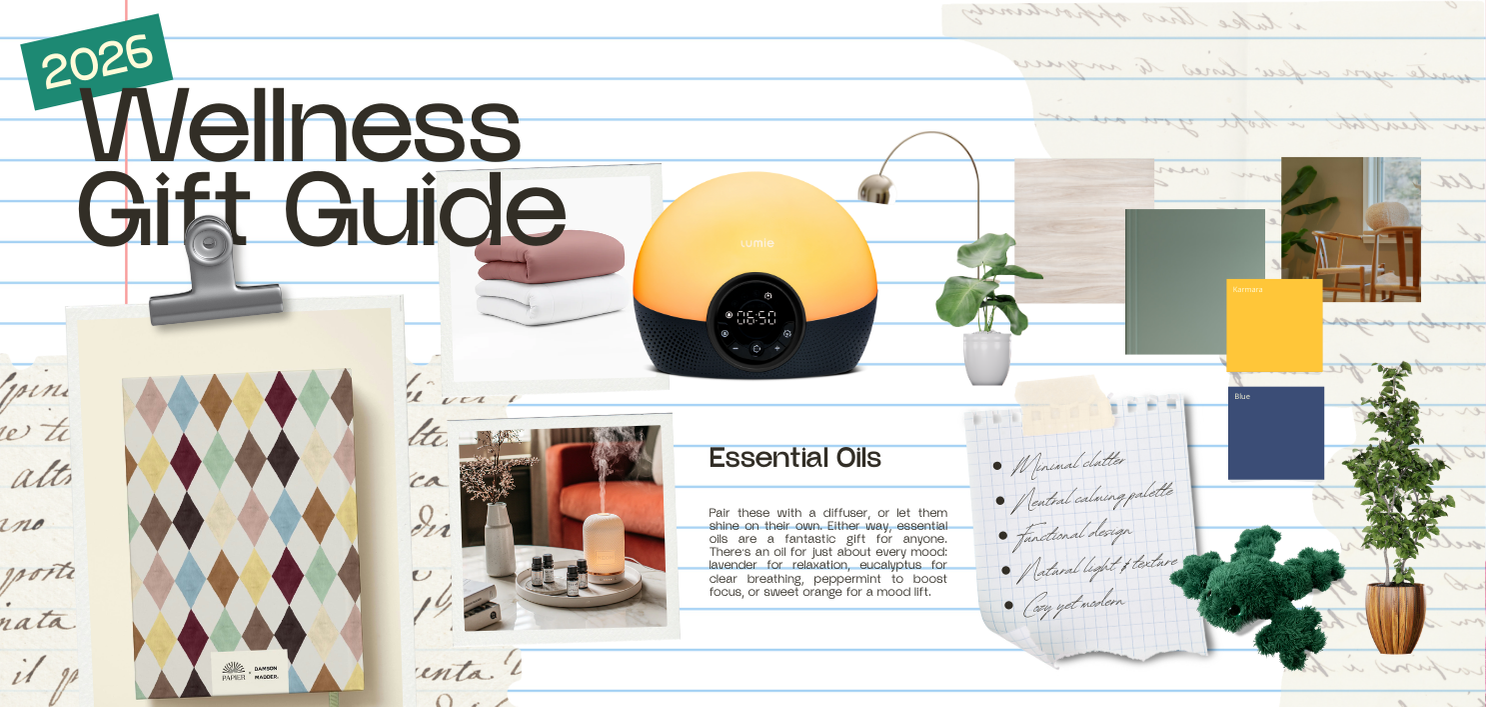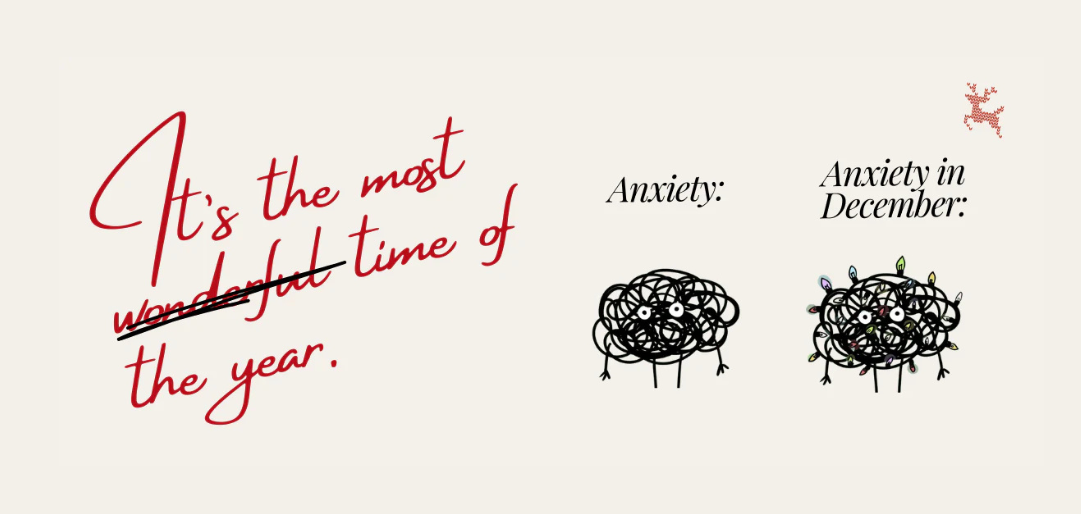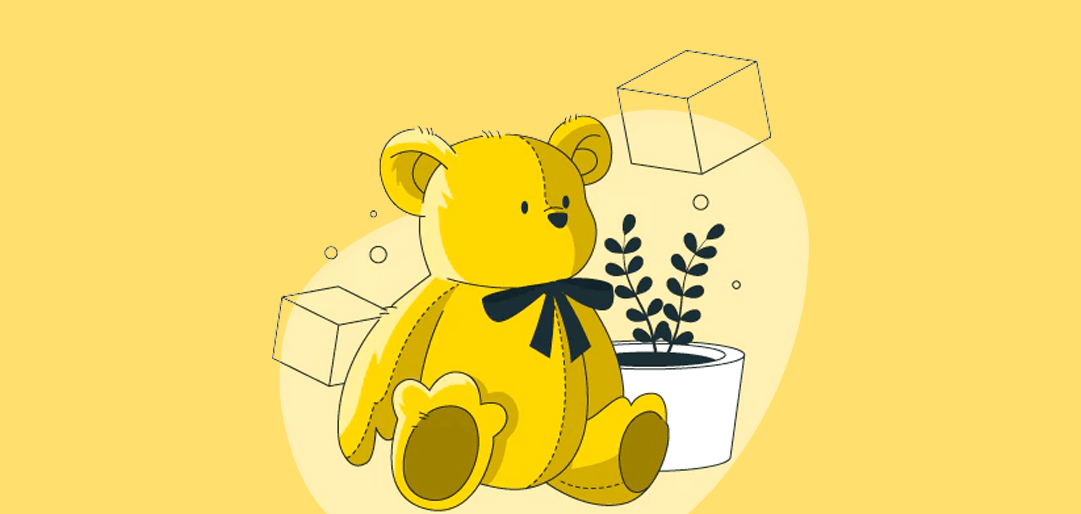Let’s not sugar coat it.
Anxiety is misunderstood and miscommunicated.
More conversation needs to happen. To be precise, more honest conversation needs to happen – so that everyone can feel included.
Even those who understand their diagnoses still find themselves rummaging through Google with mental health questions.
It’s okay, you don’t need to know everything about anxiety symptoms.
The thing is, everybody’s got a cookie-cut definition of what anxiety is.
But, there's an awful lot that no one ever talks about.
Let’s take a look.
Symptoms of Anxiety That Will Make You Say "Me"
#1 Anxiety isn't only in your head. It hurts too.

Getting pains all over like you’ve just played in the Rugby World Cup?
At first, it’s hard to believe that there is a direct connection between anxiety and physical pain.
For some people, it starts with heart palpitations, stomach cramps, tooth pain, headaches, jaw ache, joint pain, muscle pains and, well, you know... *whispers* toilet stuff.
A quick Google search says “go the hospital right now”.
For many people it can take several trips to the doctors with blood tests, MRI’s and other medical tests before they find out that their symptoms are being caused by an anxiety disorder.
And, it’s REALLY hard to believe.
So much so that a lot of people just try to convince themselves that they are absolutely fine.
#2 You get hit by a sudden feeling of nausea and light-headedness, but you haven’t just seen a ghost.

Have you ever slipped over on an icy day and landed flat on your face?
You know that split second feeling when you haven’t hit the ground yet, but you know you’re about to?
The sudden surge of panic rushing through your blood as your heart drops.
Yep, that feeling. That’s exactly how it feels.
#3 You constantly prepare answers in your head.... to questions that no one has asked.

I mean, there’s nothing wrong with being prepared.
It starts to get annoying when you’ve just wasted your entire evening getting ready for a conversation that’s never going to happen.
My Anxiety: But what if they ask me why my favourite colour is green?
Me: They won't.
My Anxiety: But.... what if they do?
Me: Hmm, well in that case...
Sound familiar? It works both ways too. If you don’t get an explanation for someone's behaviour, you might come up with your own.
#4 Sometimes it’s hard to breathe.

Shortness of breath is a symptom of Coronavirus, right?
You know what else gives you shortness of breath? Anxiety.
Sometimes it feels like you just can’t get enough oxygen.
Cue your friend or co-worker who says “just breathe”
Duh. Obviously.
But that’s when you realise, it’s actually not as easy as you thought.
It’s important that you try to establish a breathing routine or technique that you can use to help you through those moments.
#5 Small problems feel... BIG.

Little things suddenly become “the most important thing in the world or I will die”.
AKA the fire alarm for an entire block in the apartment goes off because you burnt your toast.
When you feel anxious and unsettled, it’s easy to lose your sense of perception.
Suddenly, your scale of what’s important becomes distorted and a small problem starts to consume your entire thought process.
Think about giving your worries perspective before you inflate an issue.
#6 You're always waiting for something to go wrong.

Anxiety feels like hearing the boss music in a video game, but the boss is nowhere in sight.
You know, the feeling that something is about to happen, and it’s going to be the worst-case scenario?
Feeling a constant knot in your stomach, even when nothing is wrong.
Then you think, am I forgetting something that my stomach remembers?
The advice you get is usually “don’t worry, it will be fine”.
Yeah, that’s not going to help.
#7 Feeling like you’ve done or said something wrong.

Anxiety is like creating conspiracy theories about yourself.
It’s overthinking your actions so much that you begin echoing very normal conversations in your head and dwelling upon them.
You know like restless leg syndrome? But this is restless brain syndrome.
me: *says hi to someone*
me to me: you did that wrong and now they hate you. way to go
3 months later me: “Why did I say hi that one time, it was not cool.”
This endless cycle of overthinking often leads to negative thinking and doubt.
Didn’t hear from your friend for a day? You must suck, they don’t want you around anymore.
Ask yourself
"Do I have any valid evidence to support my negative thought?"
To be clear, valid evidence CAN’T just be a thought.
#8 You can never sleep.

You forget what it feels like to wake up ‘refreshed’ and start resenting those perky smug gits who are ‘morning people’.
“OMG how was your sleep?”
Didn’t get much sleep, but I got a few hours of anxiety in!
If you struggle to sleep, we recommend you try out a weighted blanket for anxiety.
#9 Palms are sweaty.... mum’s spaghetti.

It might be cold but you suddenly feel really hot, your palms are sweaty and you are confused as to why.
This may often happen at night.
Sweaty palms are a sign that your nervous system is in “fight or flight” mode.
This usually happens when you are experiencing anticipatory anxiety (the fear that you need to confront something).
This is the brains alarm system working in full force.
Learn to listen to the signs your body is giving you and take action e.g. meditate, breathe, talk to a friend.
#10 You feel like you’re stupid for having anxiety.

From time to time, you feel ashamed of your anxiety.
You feel embarrassed or exhausted you try to hide it from as many people as possible.
It’s easy to assume there is something wrong with you and that you are flawed.
You may feel like you should have it under control, and because you don’t, you feel like a total failure.
But you are not. Far from it.
You struggle with something that many, many people are struggling with this very second.
It’s hard, and you’re incredibly strong.
#11 Feeling unplugged and disconnected.

Although one of the most common symptoms of anxiety, it’s one that doctors very rarely talk about.
Derealisation and isolation.
The feeling that you are emotionally disconnected from people you care about.
You may feel like you’re in a dream and everything feels strangely far away.
It’s normal to feel like you're going “crazy” if you experience this.
But I pinkie promise you, you are not.
Derealisation is more common than you think.
#12 People say they want to talk about it but they actually don’t...

Since Anxiety has become “big news”, there is a lot of information out there (especially on social media) that tells you that you should talk to a friend about your anxiety.
What social media doesn’t tell you though, is that most people don’t know how to deal with it.
Even someone with the purest intentions can really make a mess when they try to help.
If you’re going to talk to your friends about it, be prepared for a barrage of “don’t worry”, “get over it” and “try not to think about it”.
The harsh reality is that, if your anxiety gives you a clouded outlook on life or certain situations, your friends may start to distance themselves to avoid your “negative energy”.
It’s important to remember, that you are not a bad person or a failure for feeling negative.
You should by all means, let your friends know about your anxiety disorder, but if you want helpful advice, I recommend you speak to a trained professional.
Just a gentle reminder, that this doesn't mean your friends don't care about you!
#13 Anxiety is highly treatable.

It’s okay to feel afraid, overwhelmed or unsure what the next steps forward look like.
Only 1 in 3 of those suffering seek treatment.
This is usually because:
- Embarrassment
- They feel like it won't be helpful
- They refuse to believe they are dealing with a mental health disorder
But, anxiety is one of the most treatable mental health conditions.
There are several evidence-based treatments that help people to overcome and manage anxiety, that actually work.
And just to be clear, there is absolutely nothing wrong with asking for help.
#14 Your work environment may impact your anxiety.

Urgh. Work.
Did you know, your work environment can greatly impact your mental health?
Some jobs are the perfect recipe for a panic attack.
Work is often a place that you feel a need to hide your mental health illness.
The more you try to ignore anxiety, the more powerful it becomes.
It’s okay to talk to your employer about your mental health disorder and they may help you develop a way to feel more comfortable at work.
And, if you're looking for a sign to change your job because it makes you feel anxious, this is it.
#15 There’s nothing wrong with taking medication.

You don’t have to feel ashamed of reaching out to a doctor and trying medication.
Mental health medication can be just as essential as heart medication or anything else.
Some find that their physical anxiety symptoms fade pretty quicky after starting medication.
It’s worth noting that medication isn’t a be-all and end-all solution. You should still consider speaking to a therapist about your mental health.
#16 Ignoring anxiety doesn’t make it go away.

Many people make this mistake.
“If I ignore it, maybe it will go away”
It’s easy to push your feelings aside when you don’t want to feel something.
However, these feelings will definitely not go away.
You can try to make your emotions less noticeable, but eventually it will pop back up when you least expect it and could be 10 times worse.
Pushing your feelings back will eventually catch up to you and stop you in your tracks.
That is not a healthy way to live.
I know it's tough, but honestly addressing your problems head on is the best way to deal with them.
#17 Exercising really helps.

I know it’s annoying when people tell you to exercise and you’ll feel better, but they are on to something.
As someone with an anxiety disorder, I’ve not only studied the science, I’ve also witnessed first-hand how physical activity affects my mental well-being.
Exercise is a powerful anxiety fighter.
It relieves tension, stress and enhances well-being through the release of endorphins.
As little as twenty minutes a day of exercise can reduce symptoms of anxiety and improve concentration, motivation, memory and mood.
#18 Complementary therapy and self-care is worth it.

Mind-body therapies such as yoga, tai chi, meditation, acupuncture, or massage can help reduce anxiety.
Research suggests these practices may help lessen stress, improve coping strategies, alleviate pain and fatigue, and boost overall wellness.
Implementing a small self-care routine can make the world of difference.
You could also try using one of our weighted blankets for anxiety. They are often effective when used as a complementary therapy.
#19 You Are Not Alone.
Navigating an anxiety disorder can be tricky, and you'll probably always run into obstacles you've never faced.
However, the more you understand about your mental illness, the better you can be prepared to handle it in the future.
But, remember, knowing your diagnosis can be empowering, but that is often just the first step in a long journey that involves learning how to live with a chronic mental health issue.
Now I’d like to hear from you:
Which of these points resonated with you?
What does anxiety feel like for you?
Leave a comment below if you’d like to share.




Share:
4 comments
This! I feel most of these symptoms. Along with the derealization, I’ve noticed my memory not working as well. I know this can also be a symptom of anxiety but there’s always the gnawing thoughts that it could be some scary health issue.
or me, I will go to the bathroom when I wake up, 30 mins later, I will go again right before I catch the bus, and also right before my work shift barely 30 mins later. I don’t actually need the bathroom. I’ve never had to hold it in for too long before. It’s just a ritual tbh.
I can relate to pretty much everything on that list unfortunately. My palms are always sweaty, it’s crazy. My anxiety makes me shake, I’m not sure if that’s talked about in the media but yeah. Thanks for the list! Appreciate it.
Really helpful!